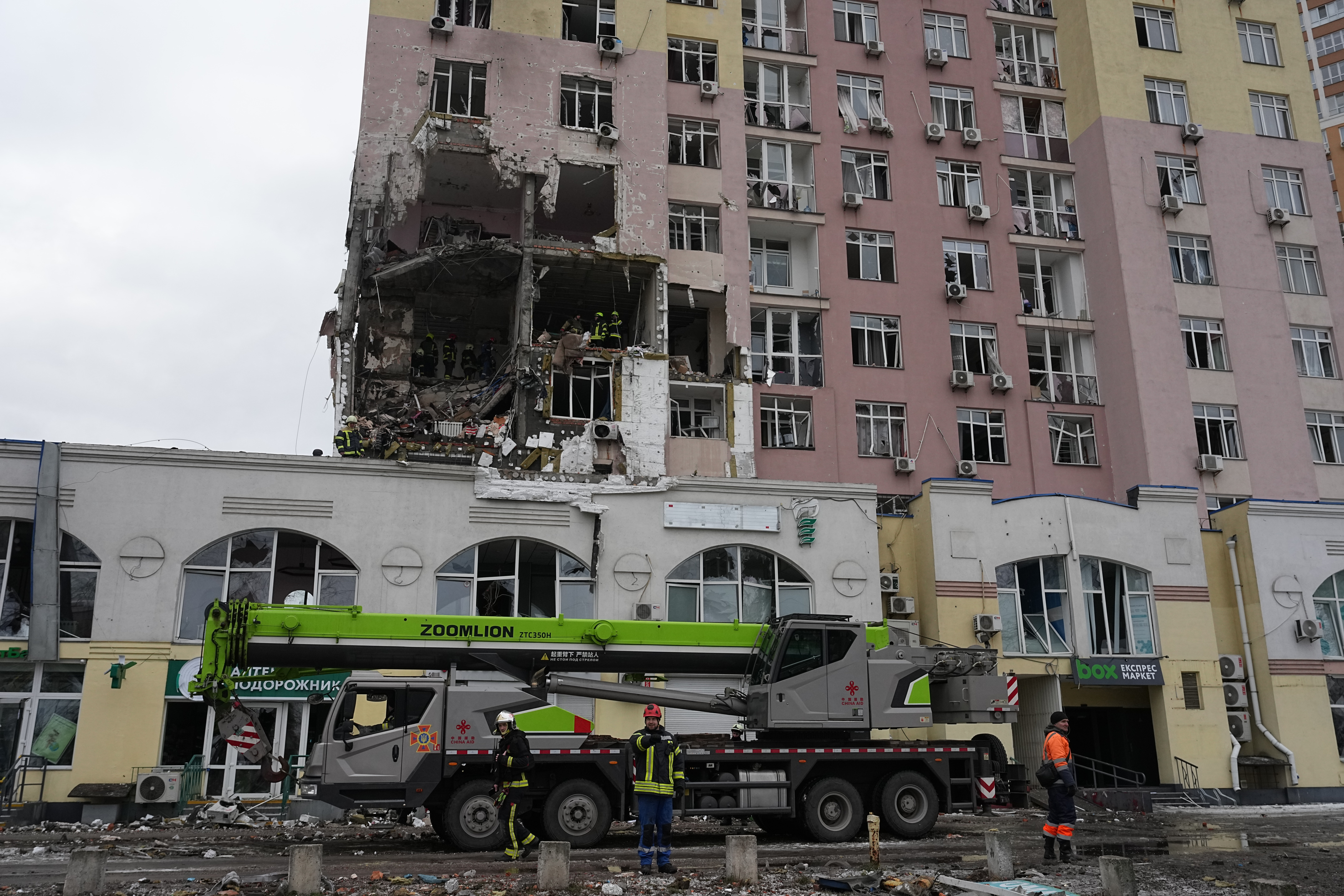Trump officials downplay the Signal leak. Some military members see a double standard
The White House continues to largely dismiss a highly sensitive discussion by leading national security officials on the open-source encrypted Signal messaging app that leaked to a reporter.
At a White House briefing Wednesday, press secretary Karoline Leavitt said the media “continues to be focused on a sensationalized story from the failing Atlantic magazine that is falling apart by the hour.”
The Atlantic‘s editor-in-chief, Jeffrey Goldberg, who was accidentally included in the Signal discussion and exposed it, published the entire text exchange Wednesday after officials minimized their actions, maintaining that nothing classified was discussed. The Signal group included the defense secretary and top intelligence officials in the Trump administration as they discussed an ongoing military operation in Yemen earlier this month. The new details about the group’s messages confirmed that Defense Secretary Pete Hegseth described specific weapons systems that would launch strikes in Yemen and that he announced the beginning of the operation more than an hour before the strikes hit.
But the leak of operational details lands a little differently with military veterans and especially with active-duty troops, who can be discharged and prosecuted for much lower-level leaks. Security breaches like what happened in the Signal group chat are called “spillage” by the military.
“What typically happens in a spillage as serious as this is they’re immediately fired,” says Kevin Carroll, who served 30 years in the Army, and in the CIA, and at the Department of Homeland Security in the first Trump administration. He says there’s no doubt what would have happened to an active-duty officer who had participated in the Signal chat.
“They’re processed for being kicked out of the military, and they’re referred for criminal prosecution,” he says.
A lawyer himself, Carroll has defended troops who accidentally leaked information.
“I’ve defended spillage cases where people were going to be put out of the military or people were going to be turned out of their job within the military for violations that are just the smallest fraction of what just occurred,” Carroll said.
Military officers who have sent battlefield assessments that were several years old have lost their jobs for passing the information over an unsecured channel, Carroll said. He defended a junior Marine Corps officer in court who sent urgent, potentially lifesaving information to fellow officers in Afghanistan from a nonclassified email server and was relieved of duty.
Carroll says, for troops, seeing leadership share attack plans in advance on Signal but so far suffer no consequences is toxic to morale. But that double standard is so common, he adds, that there’s a phrase for it in the military: “different spanks for different ranks.”
Mick Mulroy, former deputy assistant secretary of defense for the Middle East in the first Trump administration, called the Signal chat group a significant breach of security. He says if this had been lower-level officials, the repercussions would have been swift.
“There would be an immediate investigation launched,” Mulroy told NPR’s Here & Now. “They’d be removed from any access to classified information, and if this is what they in fact did, they’d likely get court-martialed. I think everybody in the military knows that is the case. And unfortunately, instead of owning up to it and taking responsibility, it seems to be that they’re making excuses for every reason why they could be able to do this.”
“Nobody’s texting war plans,” Hegseth said as he boarded a plane in Hawaii on Wednesday afternoon.
“There’s no units, no locations, no routes, no flight paths, no sources, no methods, no classified information,” he said.
Sen. Tammy Duckworth, an Iraq War veteran, took exception to Hegseth’s comments.
“Pete Hegseth is a f***ing liar. This is so clearly classified info he recklessly leaked that could’ve gotten our pilots killed,” Duckworth said in a news release Wednesday. “He needs to resign in disgrace immediately.”
NPR disclosure: Katherine Maher, the CEO of NPR, chairs the board of the Signal Foundation.
Russia attacks Kyiv, killing 1 and wounding many ahead of Ukraine-US talks
Russia attacked Ukraine's capital with missiles and drones early Saturday morning, killing one and wounding over 20 people a day before talks between Ukraine and the U.S., local authorities said.
Myanmar is set to hold phased elections. Here’s why they’re being called a ‘sham’
Myanmar's military rulers are holding a general election in phases starting Dec. 28 amid the country's civil war. The head of the U.N. says the vote will be anything but free and fair.
Perry Bamonte, guitarist and keyboardist for The Cure, dies at 65
Perry Archangelo Bamonte, longtime guitarist and keyboardist for the influential goth band The Cure, has died. He was 65. The band announced his death on their official website on Friday.
Judge to hold hearing on whether Kilmar Abrego Garcia is being vindictively prosecuted
A federal judge this week canceled the trial of Kilmar Abrego Garcia, and scheduled a hearing on whether the prosecution is being vindictive in pursuing a human smuggling case against him.
Thailand and Cambodia sign new ceasefire agreement to end border fighting
In addition to ending fighting, the agreement calls for no further military movements by either side and no violations of either side's airspace for military purposes.
Top Instagram reels from Goats and Soda in 2025: Plumpy’Nut, aid cuts, soccer grannies
Our most-viewed Instagram videos include reports from a Rhode Island factory that makes special food for malnourished children and from a tournament for soccer-playing "grannies."








